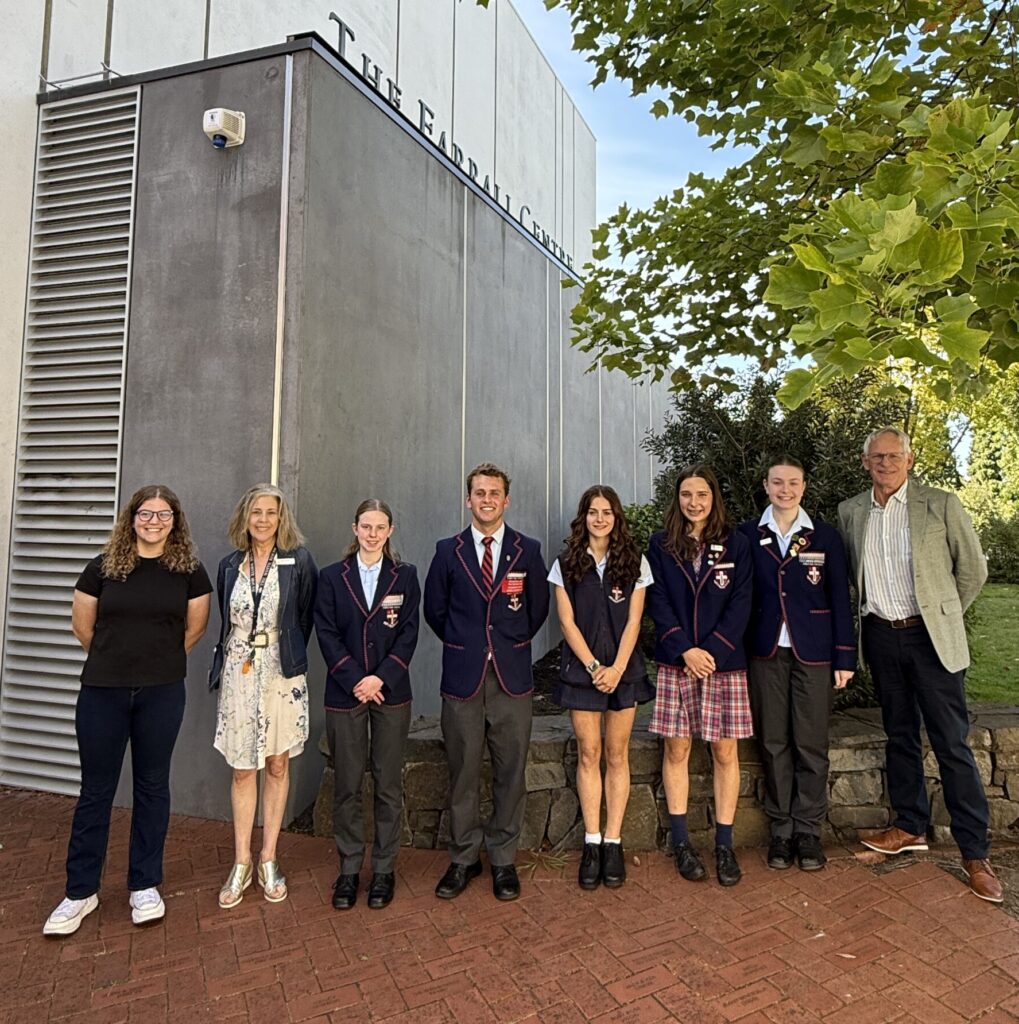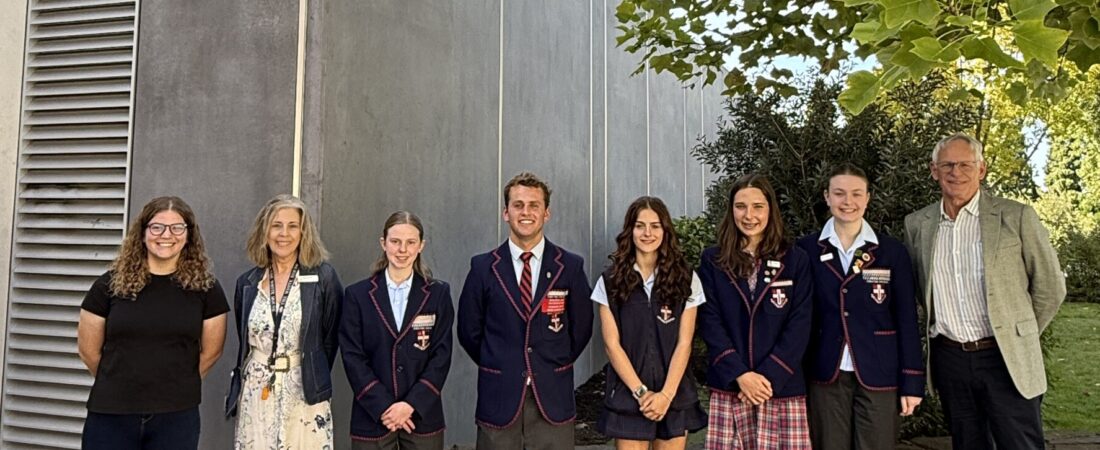Ray Green Speaking Prize 2025
Posted on March 25, 2025
By Karina Churchill, Learning Leader: Senior School English
Named after Ray Green, who attended The Friends’ School from 1925 to 1934, the Ray Green ‘Lecturette’ for Years 11 and 12 students was established by his parents for students who excelled in public speaking, after Ray passed away in a flying accident. Ray was a keen participant in the School Lecturette Competition and the Annual Literary society Competitions each year.
As most English teachers suggest, a good public speaker should practice regularly, know your audience, structure their speech clearly, maintain eye contact, and be authentic. The students that responded to this year’s prompt; “Friend or Foe” were adept in heeding that advice and diverse in their approach to the topic.

Guest adjudicators Lisa Byrne, Tara Powell and Andrew Gibson, were impressed by the great variety of approaches to the seemingly simplistic topic, finding them varied and interesting.
Anneka Lewis was first to speak. She took a wonderfully personal approach as she talked about her experience of athletics and was able to describe to us her movement, her history, her journey through athletics as a friendship, evolving through a stage as a foe, and returning to become a friend, once again. She captivated her audience with emphatic use of tone, pauses, and clarity, punctuated by repetition, anaphora, and alliteration, delivering the idea that whether that external to us is friend or foe is a choice of perception. She ended with the proposition: “We are given the choice. If you choose ‘friend’ – we can all feel a little more free.” Her speech was quite moving and personal in that regard, and awarded Runner-Up.
Bahzi Nicholas followed, beginning with an example from nature, engaging her audience early, and spoke about how we often think of many things in our lives as dichotomies but that we need to see things in more complex colours. She considered that ‘grouping things into only friends of foes does little to unite us,’ and proposed we could take a lesson from the Quakers; ‘who look for and stand up for the truth’, suggesting that ‘our moral compass is shaped by those other things we can befriend.’ Her message was encapsulated by a quotation from Audrey Lorde: “When we speak we are afraid our words will not be heard nor welcomed, but when we are silent we are still afraid, so it is better to speak.” Bahzie inspired us to be brave in knowing what must be done to make the foe, a friend.
Amelia Cooper recoursed to circular technique, beginning with a premise proposed by Shakespeare in the ‘Passionate Pilgrim’: “He that is thy friend indeed, He will help thee in thy need: If thou sorrow, he will weep; If thou wake, he cannot sleep: Thus of every grief in heart He with thee doth bear a part. These are certain signs to know Faithful friend from flattering foe.” She moved on to reimagine this idea, highlighting the necessity of broadening our understanding of the idea of a friend on the basis of loyalty alone, to privileging integrity. Amelia ended with a thoughtful piece of parting advice from William Penn; “A true friend unbosoms freely, advises justly, assists readily, adventures boldly, takes all patiently, defends courageously, and continues a friend unchangeably”.
For Sam Castle, the foe was the role of technology in our lives, rather than the foes themselves. Lambasting the ‘techno-feudal monarchy’, he suggested that ‘We need not all be friends. But as mates, we work together.’ Sam, who won this year’s Prize, used poetic technique reminiscent of Slam Poetry and glimpses of humour targeted directly at the audience of his peers, to enthrall them. He finished by imploring his audience to stop ‘scrolling’ social media: “we convince ourselves that we can just sidestep fate.’…Change must begin, now. What are we waiting for, stalling for?”
Finally, Isabel Adams, a well seasoned public speaker, spoke about friends and foes in politics. She made the lonely point that we need to see beyond a world of adversarial movement and perspectives to see the world in a great range and complexity. She left us with the example of Europe Talks and its Project Coordinator, Joshem Wagner, encouraging ‘change .. little by little, discussion by discussion’ and implored us to ‘Be willing to challenge and change our own beliefs…. Because we will all be better off for it.’
